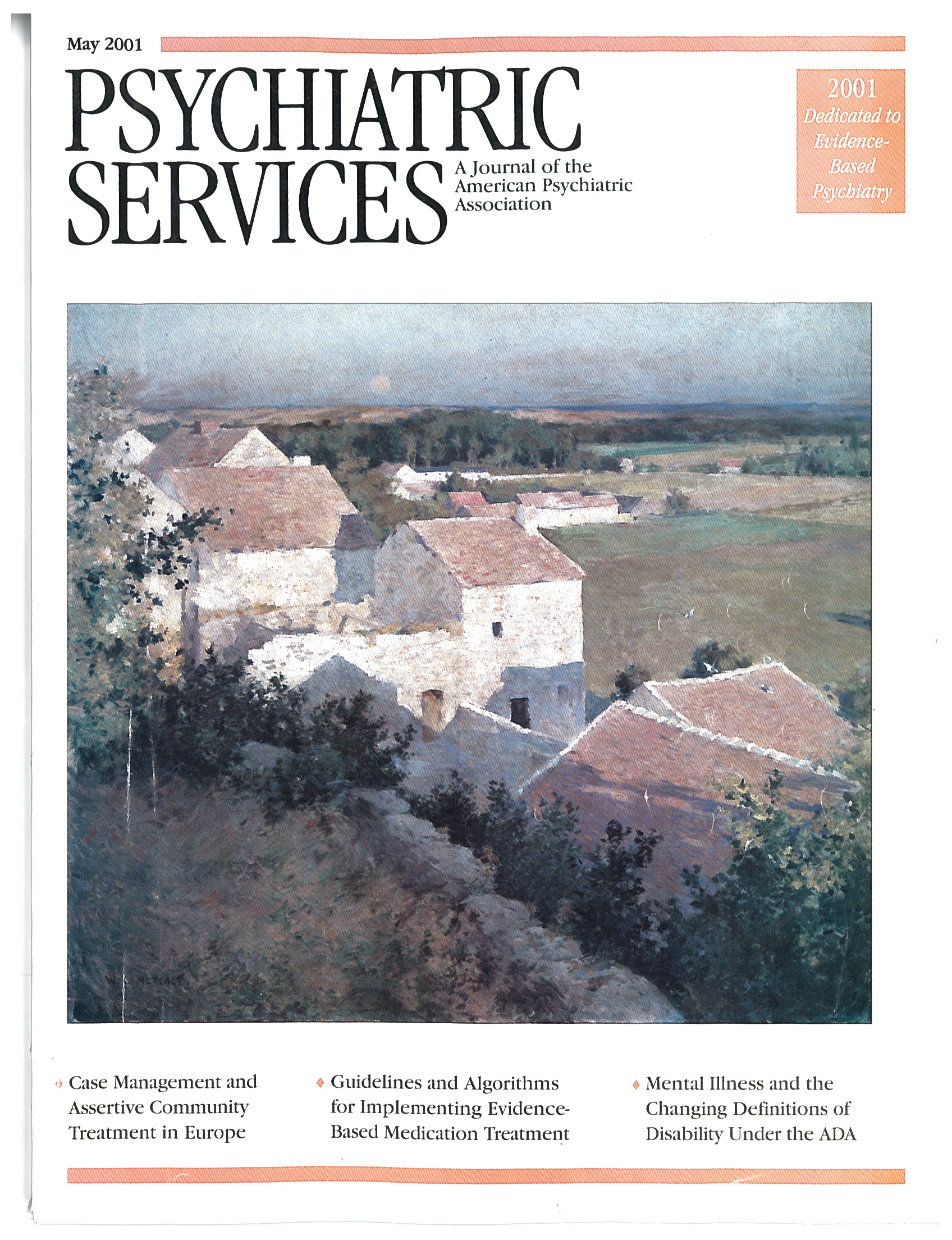To the Editor: In Frueh and coworkers' review of research on telepsychiatry (
1) in the December 2000 issue of
Psychiatric Services, the authors focus our attention on issues related to research and economics that are raised when this technology is used to provide affordable high-quality mental health care to patients in areas with few psychiatric services. As they noted, most of the telepsychiatry research is limited to studies of diagnostic reliability and validity and user's perceptions. Many of the articles are anecdotal and appear in publications with limited distribution and no peer review. Most cost and savings estimates are not reliable, because they do not include expenses associated with the per-use cost of equipment, transmission lines, and other infrastructure; technical personnel; documentation requirements; space; and hiring and training staff. The level of grant support is often unspecified.
In 1998 we conducted a study of the feasibility of implementing a telepsychiatry program to link psychiatrists at Michigan State University with patients at a rural community mental health center. A report of our study appeared in the October 1998 issue of
Psychiatric Services (
2). We identified the many variables that we thought would be involved in conducting a medication management session using telepsychiatry, and we devised a model to estimate amortized costs on the basis of projected volume of use. We were surprised to find that a telepsychiatry medication management session would cost from $179 to $244 more than a face-to-face session. In addition, we discovered immense problems in setting up a program between unrelated health care systems rather than within one all-encompassing system. Issues related to systems and boundaries added costs to the effort that even our model could not account for.
The costs of equipment continue to decline, and wireless technology may eventually offer relief to rural areas that telephone and cable companies do not find profitable to serve. Thus hope remains that the technological aspects of providing such a service will become feasible. Other costs will be more difficult to reduce. Moreover, focusing solely on technology and costs leaves broader social and research issues unaddressed.
Rural areas are sparsely populated. Distances are often great, transportation is irregular, and the populace is poor. Patients evaluated by telepsychiatry must still travel to the site where the equipment is located. Rural areas cannot generate a high volume of use of this service, and a high volume is necessary to lower per-use cost. These facts lead us to believe that economic subsidies will always be necessary. Thus it is fair to ask what approaches will give the greatest value for the money available.
Several research questions emerge from this type of approach. What are the critical elements involved in remote communication? Can other types of services, such as visits by nurses, psychiatric physician assistants, or trained primary care physicians supplemented by telephone contacts with a psychiatrist, provide more personal service at the same or a lower cost? Can review by a psychiatrist of a videotape of a structured interview conducted by another clinician, followed by a telephone call, accomplish objectives similar to those of a telepsychiatry contact, but with better visual and audio quality and lower cost?
The most difficult questions to answer will be those related to the quality of human interaction and the importance of personal contact with a caregiver. It is one thing to conduct an emergency assessment via telepsychiatry to decide whether a person is delirious or suicidal and quite another matter to have a sustained relationship via telepsychiatry with a chronically ill individual. Our culture's enthusiasm for technological solutions to problems has the potential to elevate impersonal exchanges over human interaction.

